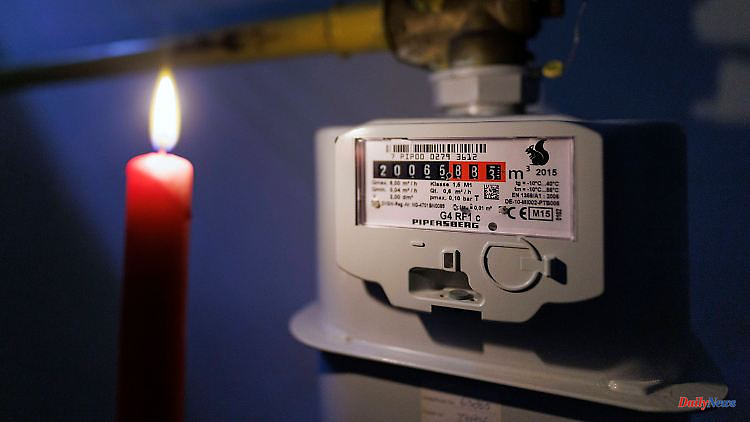Starting today, the price brakes for gas and electricity will take effect - retrospectively. In an interview, the influential economist and energy expert Südekum explains what is behind the accusation that the measure is keeping prices high and what a dangerous temptation suppliers are facing.
ntv.de: When the government decided to put a brake on gas and electricity prices last fall, energy prices were out of control. Recently, wholesale prices have fallen significantly again. Do we still need the brake at all?
Jens Südekum: The nice thing about the price brake is that it abolishes itself when it is no longer necessary. That is currently the case. If we look at what a new contract for electricity and gas costs on average, then that's 36 cents per kilowatt hour for electricity and 11.2 cents for gas. That's lower than the caps, which are 40 cents for electricity and 12 cents for gas. Someone who is able to conclude new contracts today no longer benefits from the price brakes. But that doesn't mean that the brakes have become completely redundant.
After all, there are still enough customers with old contracts.
Exactly. For them, the price brakes will of course take effect retrospectively from today until January. In this respect, the price brake is still relevant for many. If the current price developments continue like this, i.e. if prices continue to fall in the coming weeks, the price brakes will gradually become more and more irrelevant.
Criticism has been caused by the fact that many suppliers have even increased their prices in recent weeks and months. The accusation: Energy companies enrich themselves. Is the price brake perhaps even harmful?
No, it is not harmful. On the contrary. The decision was made in September last year at the height of the energy crisis. At that time, the price for new customers was over 50 cents for gas and over 70 cents for electricity. Those were dramatic times back then. Last year it was essential that the federal government bring calm to the acute crisis. A number of companies have warned against de-industrialization. They feared that they would not be able to produce at such prices. Many households also did not know how they would ever be able to pay such prices. That's why it was right to say goodbye to the price brakes at the time.
The European gas price is currently the lowest it has been in a year and a half, but consumers are not aware of it. The accusation: the price brake keeps prices high. Is that correct?
The danger cannot be completely dismissed. However, we must state that prices have fallen for end consumers. What we see on the stock exchanges is actually passed on. However, utilities are aware of the existence of the price brakes and can calculate. If utilities are now pushing prices up, customers do not necessarily have to notice it immediately. What matters to them is that the 12 cents for gas are guaranteed for 80 percent of the previous year's quota. If the suppliers now raise the price to more than 12 cents, then this will not go directly to the customer, because the difference will be compensated for by the state. This is a dangerous game for the suppliers.
How come?
The Federal Government has given the Cartel Office far-reaching powers. Normally, the cartel office would have to prove such indecent and anti-competitive price increases to suppliers. However, the federal government has reversed the burden of proof. The Cartel Office can now take random action if price increases are noticed and can then ask the suppliers to justify this. Of course, it is possible that price increases are justified because they themselves have higher procurement costs. Many suppliers do not purchase their gas on the spot market and therefore do not benefit from the currently low prices, but stocked up on futures contracts a few months ago - at that time still at higher prices. From today's perspective, that was a mistake, but of course that was not foreseeable a few months ago. The prices could also have gone in the other direction. A price increase can therefore be justified for customers in individual cases. The Cartel Office can request proof of this. Failing to do so puts a utility at real risk trying to pull off dirty tricks. Anti-competitive price increases that are not covered will result in penalties.
100 million euros were estimated for the electricity and gas price brake. Because the price brakes are no longer effective, it will be much cheaper for the federal government. What to do with the money now?
Estimates currently assume that the costs for the federal government will only be in the single digits. There is talk of seven billion. Technically speaking, the Bundestag has granted credit authorization to the Economic Stabilization Fund. It doesn't have to be drawn immediately. From my point of view, you could hold them in order to be prepared if the crisis should come back. I would keep them in reserve for the long term - maybe until 2030 - in order to reactivate the price brake in an emergency. This costs the federal government and taxpayers no money.
Juliane Kipper spoke to Jens Südekum












